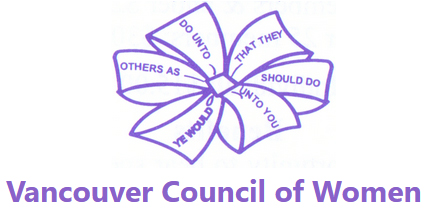By Kerry Gibson, Health Convenor
Recent Health Care Developments in Canada
Updates from the Last Two Months
In recent months, Canada’s health care sector has seen significant advancements and changes across various provinces and territories. These developments span policy changes, infrastructure improvements, technological innovations, and community health initiatives, reflecting the ongoing efforts to enhance the quality and accessibility of health care for all Canadians.
Policy Changes and Government Initiatives
Over the past two months, several provinces have announced new health care policies aimed at improving patient care and expanding services. The federal government has also introduced measures to address critical issues such as mental health, indigenous health, and the impacts of Covid-19.
Federal Election Promises for Health Care Reform
In the lead-up to the recent federal election, various political parties made significant promises regarding health care reform. These include commitments to increase funding for mental health services, improve access to family doctors, reduce wait times for medical procedures, and invest in long-term care facilities. Additionally, there were pledges to enhance the availability of telehealth services and ensure equitable health care access for all Canadians, particularly in rural and underserved areas.
Mental Health Initiatives
The Canadian government has allocated additional funding to mental health services, with a focus on increasing access to care and support for individuals affected by the pandemic. Specific examples include the establishment of new mental health clinics in urban centers such as Toronto and Vancouver, and the expansion of telehealth services in remote areas like Northern Ontario and the Yukon, making it easier for Canadians to seek help from the comfort of their homes.
Indigenous Health Care
In response to longstanding disparities in health outcomes, there have been collaborative efforts between federal and provincial governments to enhance health care services for Indigenous communities. Examples include the construction of new health facilities in Indigenous communities such as Attawapiskat in Ontario and Pikangikum in Manitoba, the provision of culturally appropriate care through partnerships with local Indigenous organizations, and targeted programs to address chronic diseases prevalent in Indigenous populations.
Covid-19 Response and Vaccination Efforts
Canada continues to navigate the challenges posed by Covid-19, with recent updates focusing on booster vaccination campaigns and the preparation for potential future outbreaks. Specific efforts to improve vaccine distribution and outreach include mobile vaccination clinics in rural areas of Saskatchewan and Alberta, ensuring that vaccines are accessible to all demographics, including remote and underserved communities.
Infrastructure Improvements
Significant investments have been made to upgrade health care infrastructure across the country. Several provinces have embarked on ambitious projects to build new hospitals, renovate existing facilities, and integrate advanced medical technologies.
New Hospital Developments
Ontario, British Columbia, and Quebec have announced plans for new hospital constructions that aim to increase capacity and modernize patient care facilities. Specific examples include the construction of the new Mackenzie Vaughan Hospital in Ontario, the redevelopment of St. Paul’s Hospital in Vancouver, and the expansion of the Centre Hospitalier de l’Université de Montréal (CHUM).
Renovation and Modernization
Existing health care facilities are undergoing renovations to improve efficiency and patient experiences. This includes updates to emergency departments in hospitals such as Sunnybrook Health Sciences Centre in Toronto, the introduction of state-of-the-art medical equipment at the Royal Victoria Regional Health Centre in Barrie, and the implementation of sustainable practices to reduce environmental impact at the BC Children’s Hospital in Vancouver.
Technological Innovations
The integration of technology into health care has continued to advance, with recent developments focusing on digital health solutions, artificial intelligence, and personalized medicine.
Digital Health Solutions
Telemedicine and digital health platforms have seen rapid growth, facilitating remote consultations, electronic health records, and mobile health applications. Specific examples include the expansion of the telehealth network in rural areas of Newfoundland and Labrador, the implementation of electronic health records in hospitals across Ontario, and the development of mobile health applications for chronic disease management in Alberta.
Artificial Intelligence in Health Care
Artificial intelligence (AI) is being increasingly utilized to enhance diagnostic accuracy, streamline administrative processes, and predict patient outcomes. Recent initiatives include AI-driven tools for early detection of diseases like cancer at the Princess Margaret Cancer Centre in Toronto, personalized treatment plans for diabetes patients at the University of British Columbia, and automated data analysis to inform public health strategies at the Public Health Agency of Canada.
Community Health Initiatives
Local health authorities and organizations have launched various programs aimed at improving public health and promoting wellness within communities.
Preventative Health Programs
Preventative health programs have been expanded to address issues such as obesity, diabetes, and cardiovascular diseases. Specific examples include educational campaigns on healthy eating in schools across British Columbia, community workshops on diabetes management in Quebec, and accessible screening services for cardiovascular diseases in urban centers like Calgary.
Outreach and Support Services
Efforts to provide support to vulnerable populations have intensified, with initiatives focusing on homeless individuals, seniors, and low-income families. Specific services include mobile health units providing care to homeless individuals in Toronto, community health centers offering support to seniors in Halifax, and partnerships with non-profit organizations to ensure comprehensive care for low-income families in Winnipeg.
Conclusion
The last two months have seen significant strides in Canada’s health care sector, with numerous developments aimed at improving access, quality, and efficiency of care. The collective efforts of government bodies, health care providers, and community organizations continue to drive progress, ensuring that Canadians receive the best possible health care services.
As the nation moves forward, these updates reflect a commitment to innovation and inclusivity, addressing the diverse needs of the population and paving the way for a healthier future.

